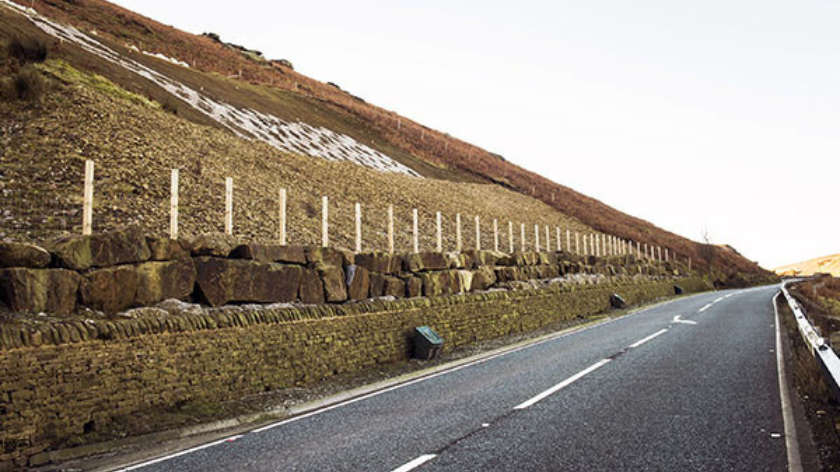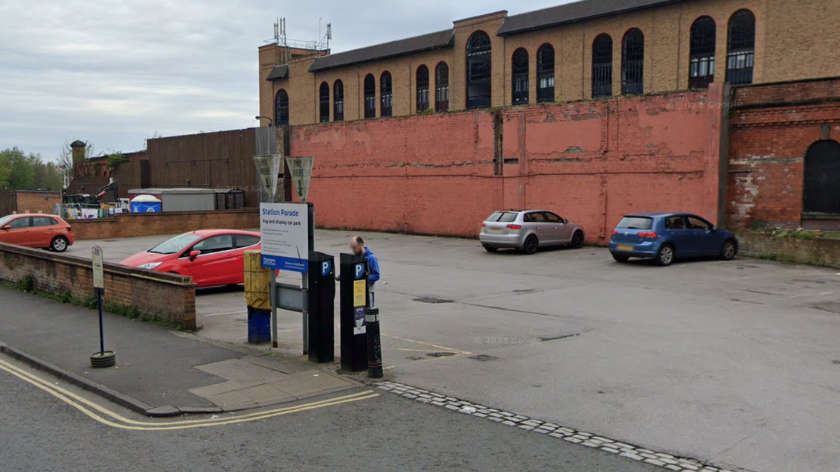
The councillor in charge of transport at North Yorkshire Council says a new road at A59 Kex Gill will now open in Spring 2026 — after the council previously said it would be open in late 2025.
Work on the £68.8m road realignment project began last year and will see the new three-mile road built from Blubberhouses that ends just after Kex Gill.
The A59 is a key link for North Yorkshire but the notorious section between Skipton and Harrogate has had a long history of landslips which has caused long diversions for motorists and extra costs for the council.
The current route reopened last month after being closed since February due to another landslip.
Ahead of a full meeting of North Yorkshire Council in Northallerton next week, Conservative executive member for highways Keane Duncan has provided a written update to councillors that reflected on the recent works.
He also confirmed the new planned opening date of Spring 2026 for the realigned road.
Council officials first said the Department for Transport-funded scheme would cost £61.6 million but this rose to £68.8m last year due to inflationary costs, with the council covering the £7.2m shortfall from its reserves.
Cllr Duncan said:
“I am pleased to report the A59 Kex Gill was re-opened on Friday 21 June, one week ahead of programme and well before the Great Yorkshire Show.
“This represents a significant engineering effort with the installation of 85m of sheet piling, 10m deep, together with new drainage, utility diversions and road reconstruction. Meanwhile, works to the new road are progressing, with opening planned for Spring 2026.”
In the same update, Cllr Duncan provided details of the North Yorkshire Council’s road surface dressing programme that began in April.
He said the council has earmarked £5m for the works which will cover 142 miles of road once it’s completed at the end of August.
He added that progress has been hampered by repeated spells of wet weather.
Cllr Duncan also discussed the planned introduction of a scheme that would charge contractors fees of up to £2,500 per day for conducting road works at peak times.
If introduced next year, it would be the first scheme of its kind in the north of England.



 Music lineup announced for return of Harrogate Food and Drink Festival
Music lineup announced for return of Harrogate Food and Drink Festival
 Successful Yorkshire debut for Harrogate rugby star
Successful Yorkshire debut for Harrogate rugby star
 Primary school rallies to support neighbour blighted by thieves
Primary school rallies to support neighbour blighted by thieves
 The Fragrance Shop opens in Harrogate town centre
The Fragrance Shop opens in Harrogate town centre
 Parking fees set to rise across North Yorkshire
Parking fees set to rise across North Yorkshire
 Campaigners seize on council leader's Gateway comments
Campaigners seize on council leader's Gateway comments
 Mercer Art Gallery to host immersive light and colour exhibition
Mercer Art Gallery to host immersive light and colour exhibition
 Runner to take on marathon for Harrogate charity that 'transformed' his sister's life
Runner to take on marathon for Harrogate charity that 'transformed' his sister's life
 Harrogate residents warned of door-to-door scammers
Harrogate residents warned of door-to-door scammers
 Rossett School to plant over 300 trees throughout grounds
Rossett School to plant over 300 trees throughout grounds
 Motorcyclist in 'serious condition' following Ripley Road crash
Motorcyclist in 'serious condition' following Ripley Road crash
 Is this Bettys Easter egg the most expensive in the UK?
Is this Bettys Easter egg the most expensive in the UK?
 The Range opens new Harrogate store
The Range opens new Harrogate store
 Country fashion brand to open in Harrogate town centre
Country fashion brand to open in Harrogate town centre
 Harrogate sisters' fashion brand named as finalist for women's style award
Harrogate sisters' fashion brand named as finalist for women's style award
 National recognition for popular Italian restaurant in Ripon
National recognition for popular Italian restaurant in Ripon
 Categories revealed ahead of Harrogate Dog Show
Categories revealed ahead of Harrogate Dog Show
 Edible garden to feature at Harrogate Flower Show
Edible garden to feature at Harrogate Flower Show
 Opening date revealed for new Harrogate jeweller
Opening date revealed for new Harrogate jeweller
 Police issue CCTV after thefts from Harrogate Sainsbury's
Police issue CCTV after thefts from Harrogate Sainsbury's








